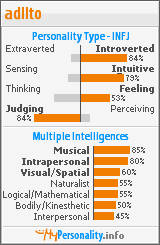 I believe attention is the most powerful tool of the human spirit. We can enhance or augment our attention with practices like meditation and exercise, diffuse it with technologies like email and Blackberries, or alter it with pharmaceuticals. In the end, though, we are fully responsible for how we choose to use this extraordinary tool. Linda Stone (see article here)
I believe attention is the most powerful tool of the human spirit. We can enhance or augment our attention with practices like meditation and exercise, diffuse it with technologies like email and Blackberries, or alter it with pharmaceuticals. In the end, though, we are fully responsible for how we choose to use this extraordinary tool. Linda Stone (see article here)
Multi-tasking is one of those jargon words very popular and a key word used for resumes to the excess, it has become almost meaningless. Linda Stone has distinguished between multi-tasking and continuous partial attention (cpa). Though superficially similar, at core they are different.
When we multi-task, we are motivated by a desire to be more productive and more efficient. We're often doing things that are automatic, that require very little cognitive processing. ... To pay continuous partial attention is to pay partial attention -- CONTINUOUSLY. It is motivated by a desire to be a LIVE node on the network. ... NOT TO MISS ANYTHING. It is an always-on, anywhere, anytime, any place behavior that involves an artificial sense of constant crisis.Stone sees that we have moved from an age of multi-tasking to an age of continuous partial attention: from a need to manage time, to now a need to manage attention. Is this good or bad? Well from Stone's opening quotation you can see she understands that something important is happening.
[I]n small doses, continuous partial attention can be a very functional behavior. However, in large doses, it contributes to a stressful lifestyle, to operating in crisis management mode, and to a compromised ability to reflect, to make decisions, and to think creatively. In a 24/7, always-on world, continuous partial attention used as our dominant attention mode contributes to a feeling of overwhelm, over-stimulation and to a sense of being unfulfilled. We are so accessible, we're inaccessible. The latest, greatest powerful technologies have contributed to our feeling increasingly powerless.In my life I have done massively mundane work in a office for example assembling agendas or stuffing envelopes over days not just hours. We used to talk until someone got a walkman. (Yes that dates me pre-CD and mp3 players!) Suddenly everyone in the room started using them. Instead of talking we isolated ourselves and listened to music while we carried out this repetitive work. Multi-tasking removed the monotony of a task but generate a solitary individualized world, however cpa can drive us crazy as we cut up our ability to be attentive into smaller and smaller fragments - driven by the desire to be connected. Convergence in technology, combining our phones, pdas, internet browsers, emailing, game playing and entertainment is the cause, pathway and expression of all this.
Linda Stone suggests we are entering an age of uni-focus, or an era of protection and belonging. This means that we will learn to effectively get our priorities straight and stick to them, supposedly. Software is being developed and has already appeared to enable this. Some bloggers are less than positive with the outlook about this. I wonder if voice recognition is a good example, where users were forced to change their vocal patterns etc to conform to the software requirements rather than software conforming to the user. At the moment cpa remains a real issue as all this attentiveness dispersed causes stress, and strains ultimately our ability to be attentive, to really pay attention. Would Samuel have heard God among all the fragments if he was exercising cpa, continuous partial attention? I need to switch off the technology and sometimes give God my total undivided attention.
So Eli told Samuel, "Go and lie down, and if he calls you, say, 'Speak, LORD, for your servant is listening.' " So Samuel went and lay down in his place. 1 Samuel 3:9









